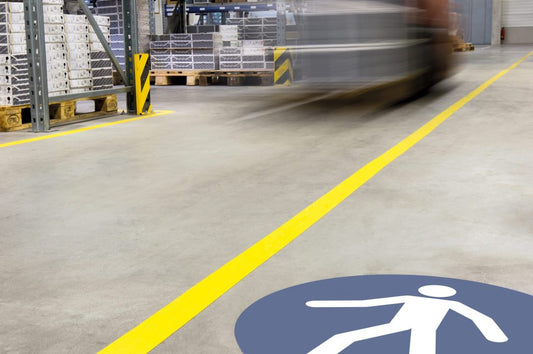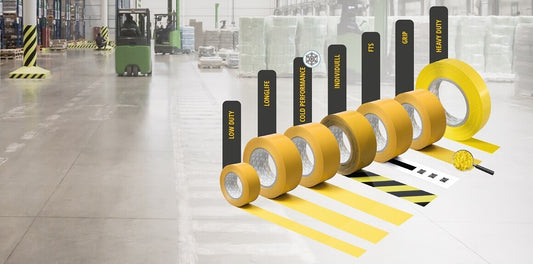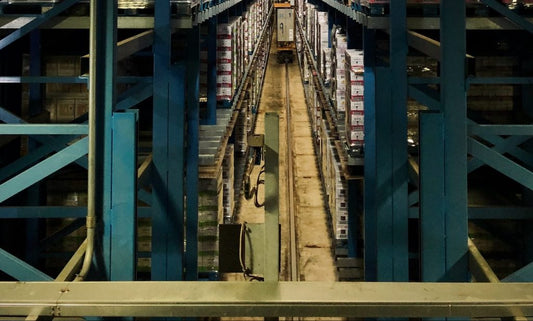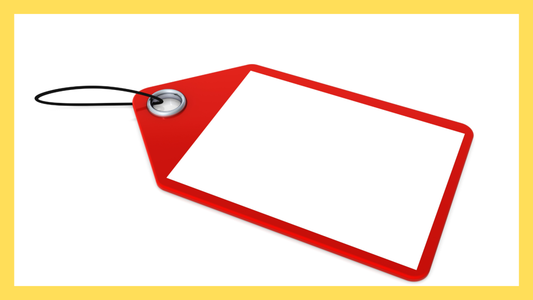In the workplace, communication is key. There are lots of aspects to visual communication that all play a part in day-to-day life. Road signs, advertisements and packaging all provide us with additional context to the information they provide. A red light indicates that the road ahead isn’t safe yet to drive on, whilst a red tag on a report could suggest urgency. We seem to benefit from visual aids in the way we communicate every day.
So what are the benefits of visual communication? We see visual cues every day and the rules are cleverly encoded into our use of language and intent. Similarly, these cues are also used in our working lives to communicate meaning at a glance, creating benefits in saving time, communication between language barriers and simplifying meaning into agreeable categories.
So what are the benefits of visual communication, and how might they help your workplace carry out tasks effectively and efficiently? Find out with Orgatex, an industry leader in workplace signage and labelling.
Examples Of Visual Communication
Let's take a look at some common examples of visual communication and see how they could lead to benefits in efficiently communicating instructions and information.
Fire Safety
Visual communication is where you are shortening instructions to the use of colours or symbols. If you work in a warehouse, workshop or factory you will likely see symbols and colours on signage every day. Whilst a sign that says ‘Fire Exit’ may seem obvious in its intentions, UK regulators had to standardise all fire exit signs in the UK during their reforms of 2005.
These reforms were intended to create a standard for all fire safety practices in the UK so that they could be easily recognisable to everyone that would need to use them. This new readability and understandability of fire signs save time in the event of a fire, where every second counts. This is why they are standardised, and are a great example of how regulating a sign's colour and format makes those signs a great communication tool.
Road Safety
When driving, we don’t have much time to gather information from the road signs we pass along the way. It is crucial to provide as much information as possible by using diagrams and colour to give us potentially life-saving information.

The common ‘One Way’ sign in the UK and Ireland is a great use of visual communication. A white arrow on a blue background benefits the driver by giving them the following information:
- An arrow which points in the direction of traffic
- Lets the driver know they are entering a One Way system
- You are approaching a junction and new traffic rules apply
To convey this message, the regulators behind all road signs in the UK decided on the colour of signage applying to drivers in or entering a one-way system. In this case, that colour is blue. If a sign is in another colour you are to expect traffic coming in the opposite direction and therefore you need to act appropriately.
These laws are ingrained into the road systems in the UK and are vital to staying safe when driving. They are a great way to encode more information than could be explained with language through the same medium in a short amount of time.
Benefits Of Visual Communication In The Workplace
You can use visual signals to align work with the intended goals of your business. You can also use them to keep people safe. If you operate heavy machinery or work in a potentially dangerous environment or with dangerous materials then visual symbols and colours will be used to help you achieve this. Understanding these rules and using them in the right way is key to keeping you and your workplace running as you intend it to. They also help you stay organised. Let’s take a look at some examples where visual communication helps align work with business intentions in more detail.
Visual Labels
Something as simple as a label can be overloaded with information that can be changed to give it visual importance. Keeping labels brief and understandable from a distance means that people can find what they are looking for easier and quicker than if they are overly technical and full of simply readable information.
Orgatex’s Container Labels make use of visual symbols and short, compartmentalised information making them lean and easy to read. Similar to road signs in our previous example, these labels allow a quick assessment of the label and its information to provide a detailed meaning.
Visible Safety Symbols
Managing safety in the workplace is a high priority. But it can be a challenge when there are areas that present dangers that aren't clearly apparent. Therefore, it is essential to put valuable information in easy-to-see areas of your place of work to direct employees towards safer actions.
To find out more about safety symbols and their importance to workplace safety, read our dedicated blog, where we discuss how safety signs infer complex safety information by using shorthand visual identifiers effectively.

Floor Markings
Floor markings allow areas of your workplace to give instructions to your staff about the environments they are about to enter or are already using. Floor tape allows agreed-upon boundaries for storing objects or for where machinery is operated.
Our floor markings work by designating the following areas to the following uses:
- Black - Work in progress, items in production.
- Red - Red tagging areas or defective items.
- Yellow - Identifying traffic lanes, walkways & aisles.
- Blue - Equipment or inventory.
- Green - Safety equipment or goods that are finished.
- White - Equipment or materials that are not colour coded, such as racks or workstations.
- Striped - Areas that are to be kept clear for safety reasons.
These boundaries allow pre-designated areas to be used for certain tasks or uses, helping to keep your staff safe and efficient in storing and organising items that they are working with.
Kanban Systems
Kanban Systems are another useful tool at your disposal to help keep your workplace organised and running efficiently. ‘Kanban’, a Japanese board which can be translated to sign board, is a methodology used for managing visual systems. These systems indicate what to produce, when to produce it, and in what proportion. This process was developed by Taiichi Ohno who was an industrial engineer at Toyota. It uses visual cues to prompt the action needed to keep a process flowing.
Kanban also helps give manufacturing and logistics companies an overview of potential roadblocks in their workflow. The use of cards placed on visual boards allows companies to use visual cues for the purpose of maximising efficiency.
Often found in manufacturing plants, Kanban systems are used to:
- Visually highlight areas of overburden and inefficiency.
- Eliminate inefficiencies found in individual or group projects or areas of overburden.
- Move focus on finishing work, which promotes efficiency.
- Allows the whole team to see progress and their relation to completing goals.
- Builds trust between staff as collaboration is encouraged.
- Improves responsiveness to changes in demand.
The reason why Kanban systems have become so ubiquitous in manufacturing is through their simple approach. Their methods are easy, which is down to the efficiency of visual communication used correctly.
Visual Communication Systems From Orgatex
Here at Orgatex, we have over 50 years of experience in workplace efficiency through visual communication. The above examples we use in our warehouse every day and are tried and tested over years of use. Our Lean Management systems are based on simple executions of logical principles combined with the efficiency of visual communication.
Continuous improvement in the workplace can be managed through your understanding of how your team communicates between themselves and with safety signs and systems.
Looking to implement visual communication and Lean Management in your workplace? Get in touch with Orgatex to see how you can use our systems to improve efficiency, safety and productivity in your workplace.












